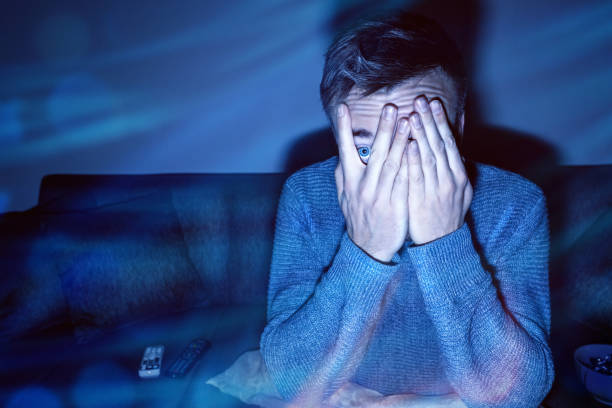Horror Movie Reactions Could Reveal Hidden Personality Traits
Horror movie nights are meant to make your heart race and keep you awake long after the credits roll. The intense music, sudden jump scares, and disturbing scenes trigger your brain’s natural fear response raising your heart rate, releasing stress hormones, and putting your body on alert. For most people, this reaction lingers, making it difficult to fall asleep immediately after watching. But some people can watch the most frightening scenes and still fall asleep moments later and researchers say that might reveal something unusual about how their minds work.

Studies suggest that people who remain calm and unaffected after a horror movie may have traits linked to psychopathy though not in the extreme or dangerous sense. Psychopathy, in psychological terms, often involves reduced emotional sensitivity, lower fear responses, and a more detached reaction to situations that would typically unsettle others. In such individuals, the brain’s amygdala the region responsible for processing fear. tends to react less strongly. As a result, they might not experience the intense surge of anxiety that keeps most viewers awake after a scary film.
Horror Movie Response Shows How Some Brains Process Fear Differently
When fear-related hormones like adrenaline spike during a horror movie, it takes time for the body to return to a relaxed state. That’s why many people replay scenes in their minds, feel uneasy in the dark, or struggle to sleep. However, those who fall asleep quickly might have a nervous system that simply doesn’t respond in the same way. Their bodies and minds stay relatively stable, showing fewer signs of stress and arousal. This blunted response can make them appear unusually calm in situations that would normally cause fear.

Experts emphasize that such reactions do not mean someone is dangerous or lacks empathy entirely. Instead, it shows a difference in how their emotional system functions. People with lower sensitivity to fear might perform better in high-pressure situations, stay composed during emergencies, or think more logically when others panic. These traits can be beneficial in certain professions, such as medicine, law enforcement, or crisis management, where calm decision-making is essential. Also Read: 16 Year Old From Kerala: Inspiring Reasons Why This Teen’s Achievement Is Making Headlines
Horror Movie Impact Extends Beyond Entertainment and Into Psychology
The fascination with horror movie reactions has led scientists to explore how fear responses vary across individuals. Some research indicates that genetics, upbringing, and even past trauma can influence how strongly we react to fear-inducing stimuli. People who have been repeatedly exposed to frightening situations might naturally become less reactive over time. Similarly, those with specific personality traits such as low neuroticism or high emotional stability may also display a more muted response.

What makes this phenomenon particularly interesting is that it highlights how deeply entertainment and psychology are connected. Horror movies are designed to provoke strong emotions, yet our reactions reveal much more than just whether we enjoy a good scare. They can provide insight into how our brains interpret threats, how resilient our nervous systems are, and how our personalities shape our experience of fear.
View this post on Instagram
Horror Movie Calmness Might Point to Unusual Emotional Processing
Horror movie reactions also challenge the common belief that fear is universal. While many viewers see a horror film as a test of courage or a thrill-seeking experience, for some, it barely registers as a significant emotional event. Their calmness isn’t a sign of disinterest it’s a reflection of how differently their minds are wired.

Conclusion:
Falling asleep easily after a horror movie might seem like a simple quirk, but it could reveal deeper psychological traits. It shows how individual differences in fear response shape our experiences and highlight the diverse ways humans process emotion. Ultimately, how we react to fear says as much about who we are as the stories that frighten us.

